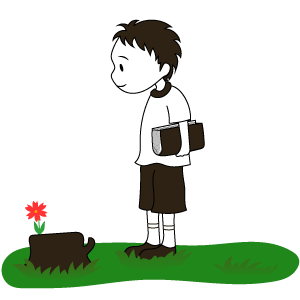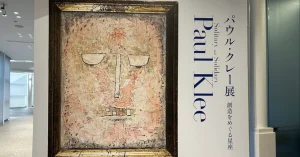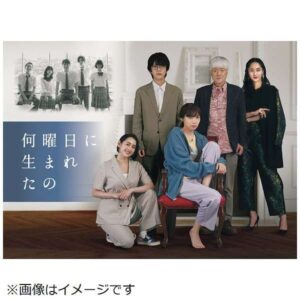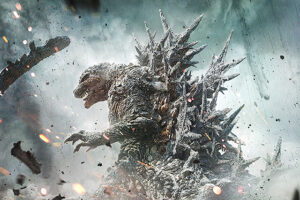I read “First Person Singular”, a new collection of short stories by Haruki Murakami (titles hereafter omitted). This is apparently a collection of short stories published in literary magazines and not newly written.
I saw many reviews here and there saying that it reminded them of the old short story collection “Slow Board to China,” and perhaps they sensed a nostalgic atmosphere in it.
The main characters in the short stories are all written in the first person, “I,” or “me. This is Haruki Murakami’s signature style of writing.
In one of his books, he once said that Dostoevsky’s “The Brothers Karamazov” was his ideal work and that he hoped to write something like it someday.
However, “The Brothers Karamazov” is written in the third person. I think he was keenly aware of this, as you said in “Novelist as a Profession” that the first person is indeed a very restrictive way to tell a story, and that it is insufficient for writing breadth and depth.
I’m just guessing here, but I think that in order to write your ideal work, to get closer to the world of the Brothers Karamazov, you abandoned the first person for a time and began to try third-person works (“After Dark” was the first of your attempts, I think).
However, I have to admit that those works did not feel right to me. Many Haruki Murakami fans said, “Haruki-san has changed. He has become boring. I am sure that many readers regretted that he had lost that atmosphere.
After that, he created “1Q84” and “Kafka by the Sea,” which are not completely in the first person but repeat the first person alternately, and they are all excellent works (wonderful for me), but the readers who liked Haruki Murakami from the beginning felt a little uncomfortable, and this was a decisive turning point for them. This was the moment when they decided to leave him.
If I were to use a baseball analogy, it would be like seeing a fastball pitcher who used to be a fan of straight pitches turn into a cunning softball pitcher who throws a variety of breaking pitches, and feeling a bit of sadness while accepting that he has been successfully revived and is fresh.
In those works, the fast-paced charm of the first-person “I” that tried to depict the world in all its depths has disappeared. I think that is the true feeling of fans who have recently stopped reading Haruki Murakami’s novels.
However, this new collection of short stories is a complete return to the first person. I think that’s where the nostalgic or old-fashioned feeling comes from.
If you ask me if the fact that I have returned to the first person means that I have gone back to the “Slow Board to China” days and that my attempts at the third person were in vain, I feel that this is not the case.
At the risk of sounding rude, I believe that we have come back more evolved (deepened). I think he has come back with a fastball that is sharper and heavier than before. (This is just an aside, but just like Neo of the Chunichi baseball team, who used to pitch when he was in junior high school, has come back as a pitcher from a fielder.)
Until now, Haruki Murakami’s “Boku” has been a story about a man who lives his life by protecting and carrying through his world, and thus clashes with the world, but still tries to carry through with his “Boku. We empathize with “Boku’s” unwavering view of the world and his reckless battles.
I must repeat that by introducing the third person, the world of “Boku” was shaken. If there were as many “me “s as there were characters, and if each of them started fighting against the world to make their world right, the result of the story would, of course, become uncollectible and collapse.
As one can see when you create a novel in the third person, the author naturally has to take God’s point of view.
In “Norwegian Woods,” the author says that a “Greek tragedy” is a story in the third-person world in which, as a result of a messy situation, God suddenly appears to solve the problem.
In this case, it is God, or “me,” who judges the characters. In this way, the characters inevitably become less and less present as individuals. This is because the entire story becomes “I.” The world of “I” is the world of the characters.
The world of “I” is subdivided into as many different parts as there are characters. The “I” = “God” is caught in the dilemma of not being able to create a world that is more than “me.
The reason why “The Brothers Karamazov” is called the world’s greatest work of literature may be because it is a masterful compilation of such a world and brings it to salvation as a single form.
Then, Haruki returned to “I” again in this collection of short stories, and began writing in various first-person styles.
I think the consistent theme in these stories is “existence.
In other words, do the characters, including myself and the others, really exist? I thought I was clearly aware of their existence, but it may have been an illusion, including my own existence. I think it is a doubt about “existence.
It is a story about a person who wears fashionable clothes and goes to a bar, only to be mistaken for someone who even exists.
A story about a person of the opposite sex whom you thought you knew, but who was actually a criminal.
A monkey who takes away a person’s name (that is, his very existence) (the work says this is not a serious crime, but in fact, I think it is an unforgivable sin).
Is there a place where we really exist? And the question is raised as to how far we are able to recognize other people and to what extent we are able to do so.
As we deepen our understanding of “boku,” the natural question is what “boku” really is. Can “I” really recognize an accurate “I”?
This question is the reason why I feel a new evolution in this collection of short stories.
This question, and the answer to it, are the stepping stones to a full-length work that will surpass “The Brothers Karamazov” (as in the past, the short story was positioned as an experiment for the next full-length work).
I have a feeling that this yet-to-be-seen full-length work will give us a story about “existence and time,” the question posed by the philosopher Heidegger: “Do I (I) really exist at this moment in time?
I may have thought too many difficult things after reading just one short story, but I am sure that the next (and last?) novel will give us a glimpse of what to expect. I think this is a very enjoyable group of works in the sense that it gives me expectations for the next (and last?) full-length novel.
I would like to encourage Haruki fans who have once left to read them.












